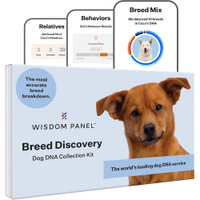Pit Bull: Breed profile
The intelligent and energetic Pit Bull splits popular opinion, but these dogs can make for loyal and lovable pets
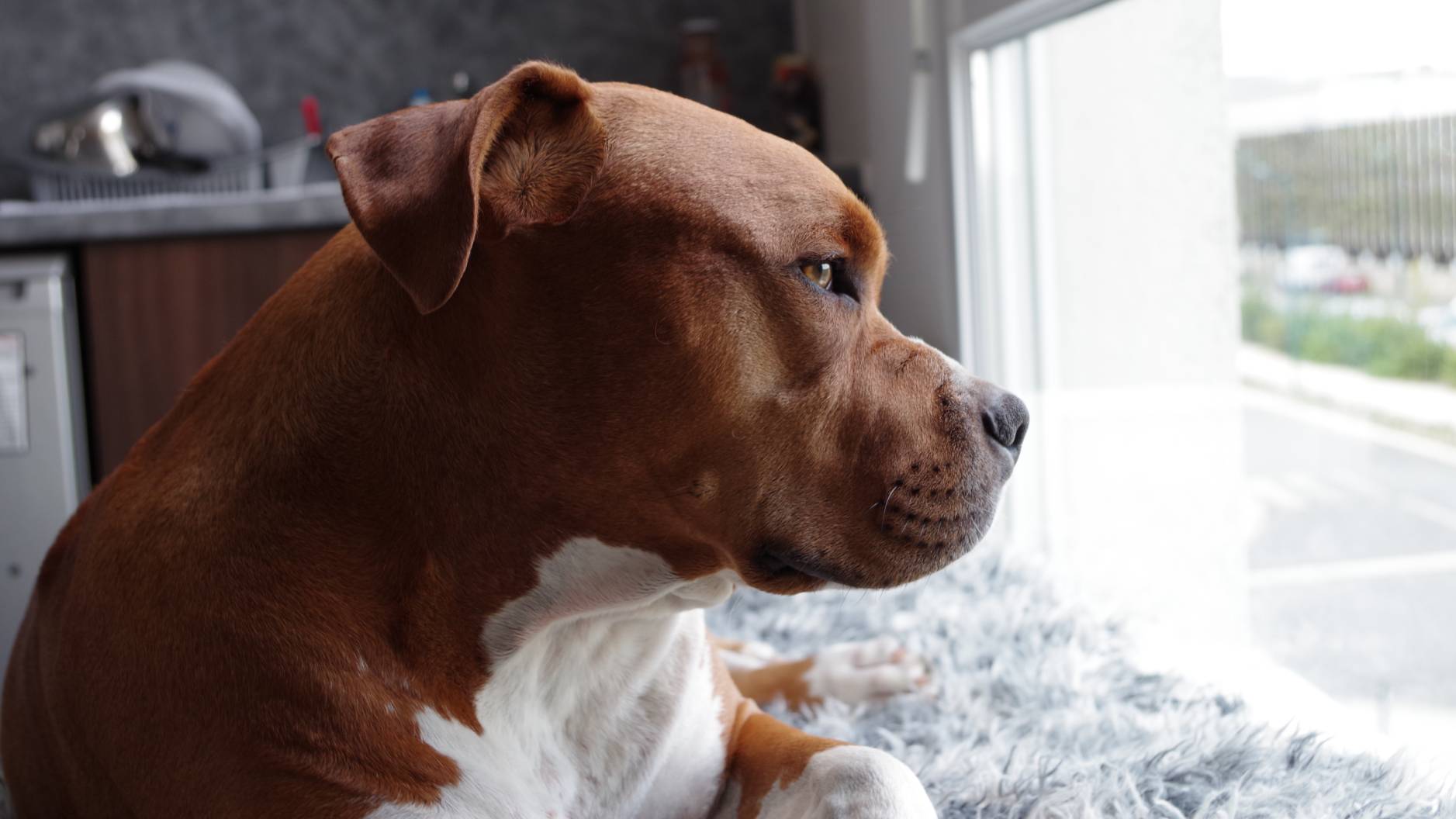
Pit Bulls split opinion like no other breed. Deemed dangerous by some and beautiful smiling pooches who wouldn't harm a fly by others, the truth is somewhere in between. What is certain, though, is that Pit Bulls are becoming more and more popular as pets. Changing attitudes towards the breed has put them in the top three favorite dogs to own in about 28 US states and there are some big name owners out there including actors Jessica Alba, Jennifer Aniston and Kevin Bacon.
Their history can be traced to the 1800s. Derived from Old English Bulldogs and Old English Terriers, Pit Bulls were bred for bull-baiting and prized for their fighting ability. They were also seen as great human companions and they became popular in both the UK and US. Many Pit Bulls were owned as working dogs, mainly due to their agility and ability to learn quickly. They then found their way into homes as adorable pets.
The turning point for the breed came in 1987 when the cover of Sports Illustrated magazine carried an image of a snarling Pit Bull with its teeth bared under the headline Beware Of This Dog. It seemed to change a lot of attitudes for the worst as it concentrated on dog-related fatalities. Today, however, attitudes have largely swung back the other way. As we will see, Pit Bulls can make for wonderful pets and do so in homes across the world. With great training and socialization, they're a great family dog.
How much exercise does a Pit Bull need?
Life expectancy: 12-14 years
Average weight: Male: 60 lbs/27 kg Female: 50lbs/ 23 kg About the same as: A microwave oven
Pit Bulls are energetic dogs and they need at least an hour of exercise each day to keep them healthy. As such, they're not ideal pets for anyone living in an apartment or a very small home because they will need plenty of room – and preferably a sizable, secure outdoor space – to burn off their excess energy.
Simply letting them potter around a yard won't be enough, however. Pit Bulls benefit hugely from engaging in playful activities with their owners, stimulating them mentally as well as physically. They love games of hide-and-seek, especially if there are some treats involved. They also enjoy fetch, tug-of-war and catching frisbees.
Walking and running are the best forms of exercise, however, and this is why Pit Bulls require active owners who can stand the pace. Thankfully, given their great stamina, this breed makes for a great companion on long walks and hikes. Pit Bulls also like to accompany humans on a run.
Sadly, you will need to keep a Pit Bull on a leash, however, not least because they can have a very high prey drive (they were, after all, bred to hunt vermin). In some instances, you may even have to consider a muzzle, particularly if you're finding the dog is barking, growing and lunging at other people and animals.
Happiness and exercise also extends to inside the home where, again, you need to keep a Pit Bull's mind and body ticking over. Invest in some of the best dog toys to keep them busy and that way they will leave your furniture alone and refrain from being destructive.
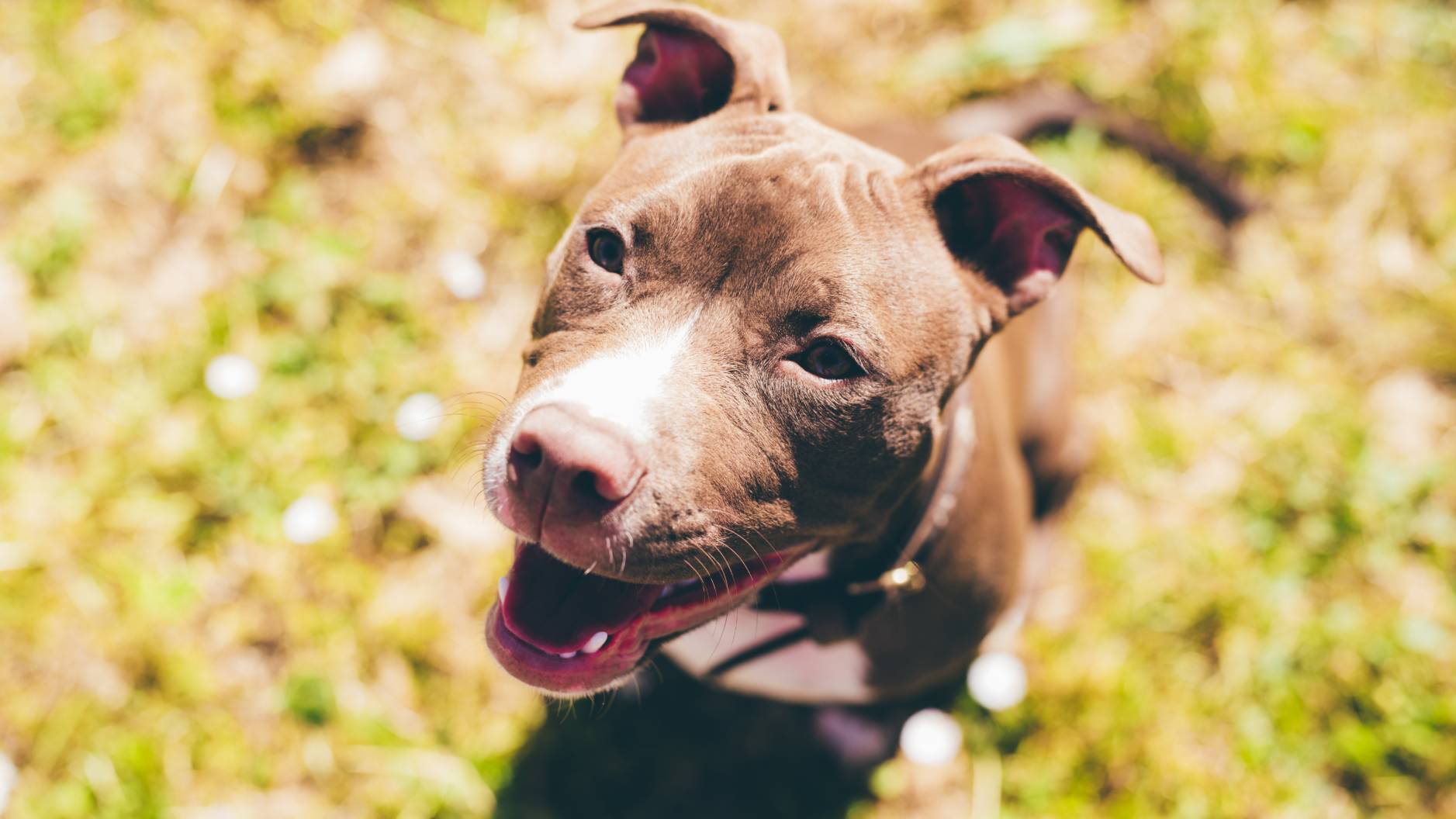
Are Pit Bulls easy to train?
Suitable for: Energetic owners who have time to train and socialize a dog
Not suitable for: Anyone who lives in a small home with little room to roam
Temperament: Strong-willed, obedient, loyal
Shedding: Low-to-moderate
It is crucial to train a Pit Bull well. Doing so will encourage these intelligent dogs to grow into adorable family-friendly pets by steering them away from bad behavior and making them more acceptable of other animals and people. As such, it's best to start straight away by socializing them in a variety of situations and getting them used to being touched. The key is to remain in control and remember that Pit Bulls require strict discipline.
You'll find that Pit Bulls respond well and are eager to please their favourite people. Indeed, they are one of the most highly trainable dog breeds around and they love to be heaped with praise. With solid lead training, you can soon ensure a Pit Bull walks by your side rather than tug to get in front. Crate training will help when you have to leave a Pit Bull at home alone. Do bear in mind, though, that you will have to continue their training throughout their lives. It won't be enough to concentrate your efforts during the time they are puppy because bad habits will inevitably emerge later on.
Are Pit Bulls good with kids?
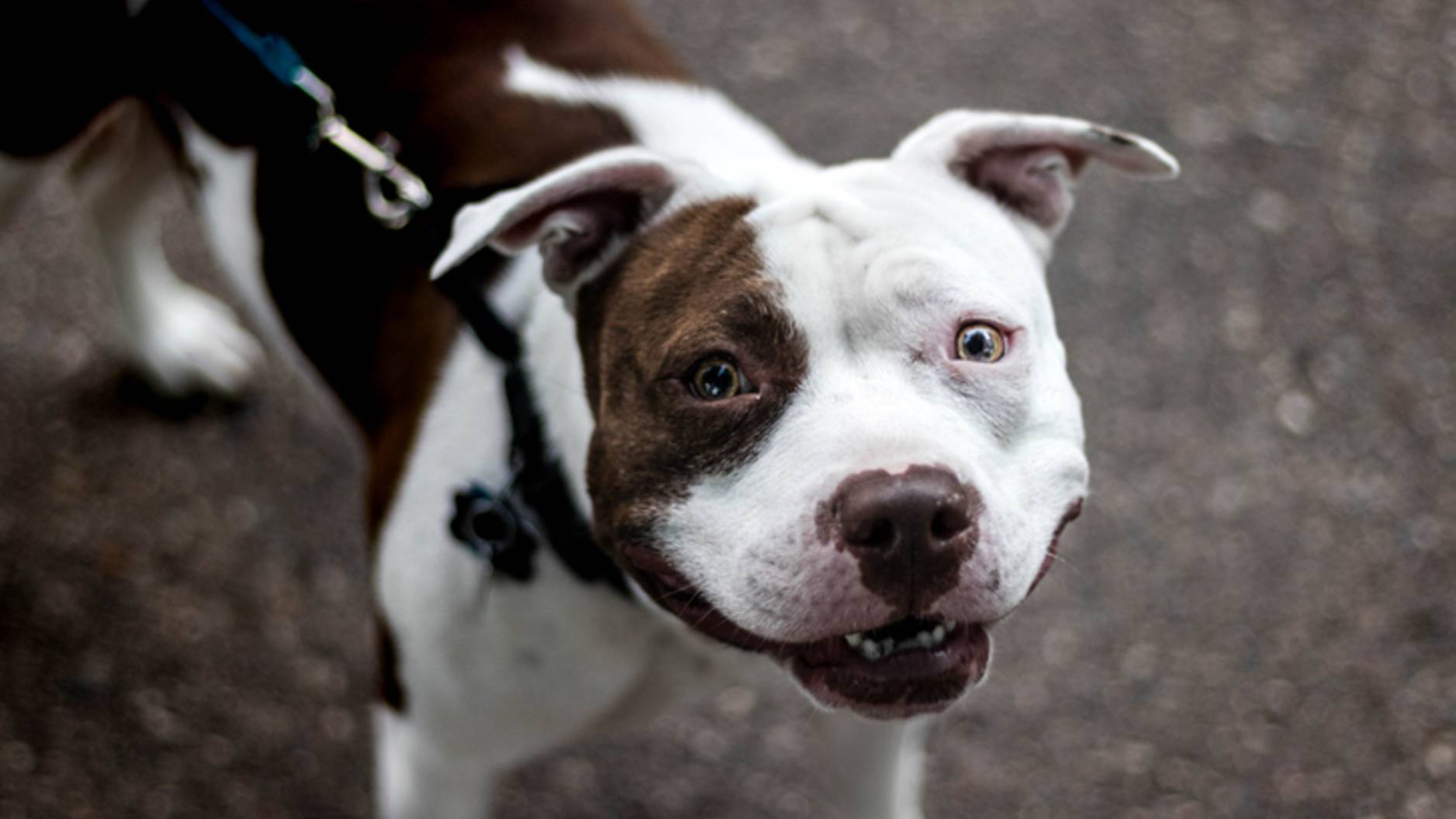
Well-trained Pit Bulls – the emphasis being on well-trained – will be great with children. They'll prove affectionate, loving and loyal so long as they've been socialized with kids from a young age. But it is important to teach children how to behave around them too by avoiding rough play and excessive poking and prodding. Ultimately, it's about common sense and courtesy.
What do Pit Bulls eat?
Given their size and how energetic they are, Pit Bulls need a lot of food – but not so much that they will end up becoming obese. You will need to take into account their individual metabolism rate so that they only eat a sufficient amount to maintain their lean and muscular bodies. And the more active they are, the more they will need to consume.
In general, the best dog food for Pit Bulls will contain about 40 percent high quality protein mostly from animal sources but they also need a balance of carbohydrates, vitamins, minerals and fatty acids. It's a good idea to separate meals across two or three small portions each day. This will prevent them wolfing their food down to the point they forget to chew – potentially causing bloat, gas and diarrhea.
Do Pit Bulls bark a lot?
Not really. Indeed, Pit Bulls are moderate barkers and you'll find that they only make a noise if they are agitated, threatened, scared or simply bored. In some ways, it can be a problem. If they do take a dislike to another dog, then they may not give you any heads-up and go straight in for a bite. But again, these sort of incidences can be wiped out with the best training and supervision.
Are Pit Bulls aggressive?
Search online and it won't take long for you to see headlines such as “why do so many Pit Bulls maul children”. You'll come across stories of Pit Bulls attacking kids, causing death and injury, and you will see statistics such as those compiled by DogsBite.org which suggest Pit Bulls are responsible for close to 70 percent of fatal dog attacks.
It paints a miserable picture of this breed but, in truth, Pit Bulls are not inherently aggressive. If they do show displays of anger then it is often down to owners failing to train them properly or, in some cases, actually encouraging the bad traits because it somehow makes the dog seem more macho. If anything, they are less tolerant of other animals rather than people. But there is no denying they are strong dogs and they do have powerful jaws. You wouldn't want to be on the wrong side of a Pit Bull.
Do Pit Bulls shed a lot?
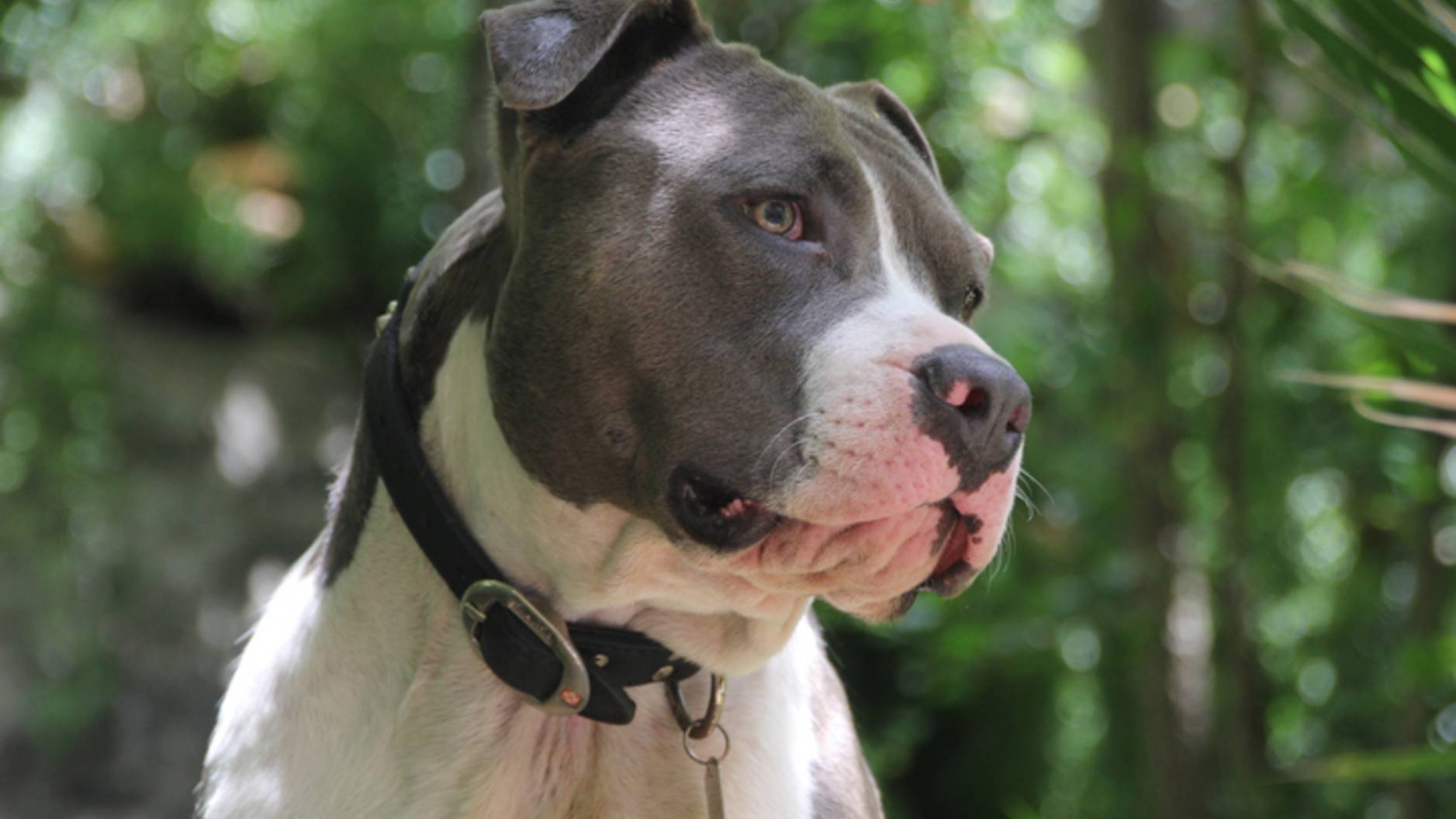
Amount Of Shedding: Low-to-Moderate
Easy To Groom: Yes
General Health: Good
Potential For Weight Gain: Moderate
Pit Bulls are single-coated dogs so that should mean they don't shed too much, right? Wrong. Pit Bulls do actually shed more than you'd imagine but, because their hair is short, it's not as noticeable on your furnishings, floor and clothes. That means it's nothing regular vacuuming cannot handle but do watch out for excessive shedding which could be a sign of stress and dehydration. You can also stay on top of the issue with daily or weekly brushing. While you're doing so, pay attention to a Pit Bulls' ears, keep their teeth clean, trim those nails and bathe them every now and then.
Wisdom Panel Breed Discovery DNA Kit | Amazon
Not sure exactly what breed your dog is? This kit screens for 365+ breeds – because knowing every detail about your dog helps you understand how best to care for them.
Pit Bull health problems
Pit Bulls are generally healthy dogs but if they eat too much they can be prone to obesity. They can also gain weight if they suffer from hypothyroidism which means they have they have a lack of a hormone called thyroxine. It tends to emerge in middle-age and also causes flaky skin, a dull coat, muscle loss and a slowed heart among other symptoms. Skin irritation is general problem too and Pit Bulls can also suffer from knee issues and hip dysplasia. As always, the best pet insurance will cover most problems.
Should I get a Pit Bull?
Pit Bulls can be wonderful dogs. They love people, they goof around, they're eager to please and extremely loyal. But there is a dark side which is well-documented. If you're willing to train and encourage a Pit Bull, though, there is no reason not to have one. You'll be kept fit on those daily walks (or runs), enjoy energetic playtimes and find security in the protection they offer. They are also very easy to groom.
Want to learn more about this breed? Here are our favorite pit bull facts
PetsRadar Newsletter
Get the best advice, tips and top tech for your beloved Pets

David Crookes has been a journalist for almost 30 years and he has written for a host of magazines, newspapers, websites and books including the World of Animals Annual, BBC Earth, Live Science, The Independent and Tom’s Guide.
Born in England, he lives with two cats but he’s also keenly interested in the differences between the huge number of dog breeds – in fact, you can read many of his breed guides that he’s written in collaboration with vets here on PetsRadar.
With a lifelong passion for technology, too, he’s always on the lookout for useful devices that will allow people to keep their pets happier and healthier, and provide them more time to spend together.
David has a degree from Durham University, as well as postgraduate diploma in journalism from the University of Central Lancashire.
